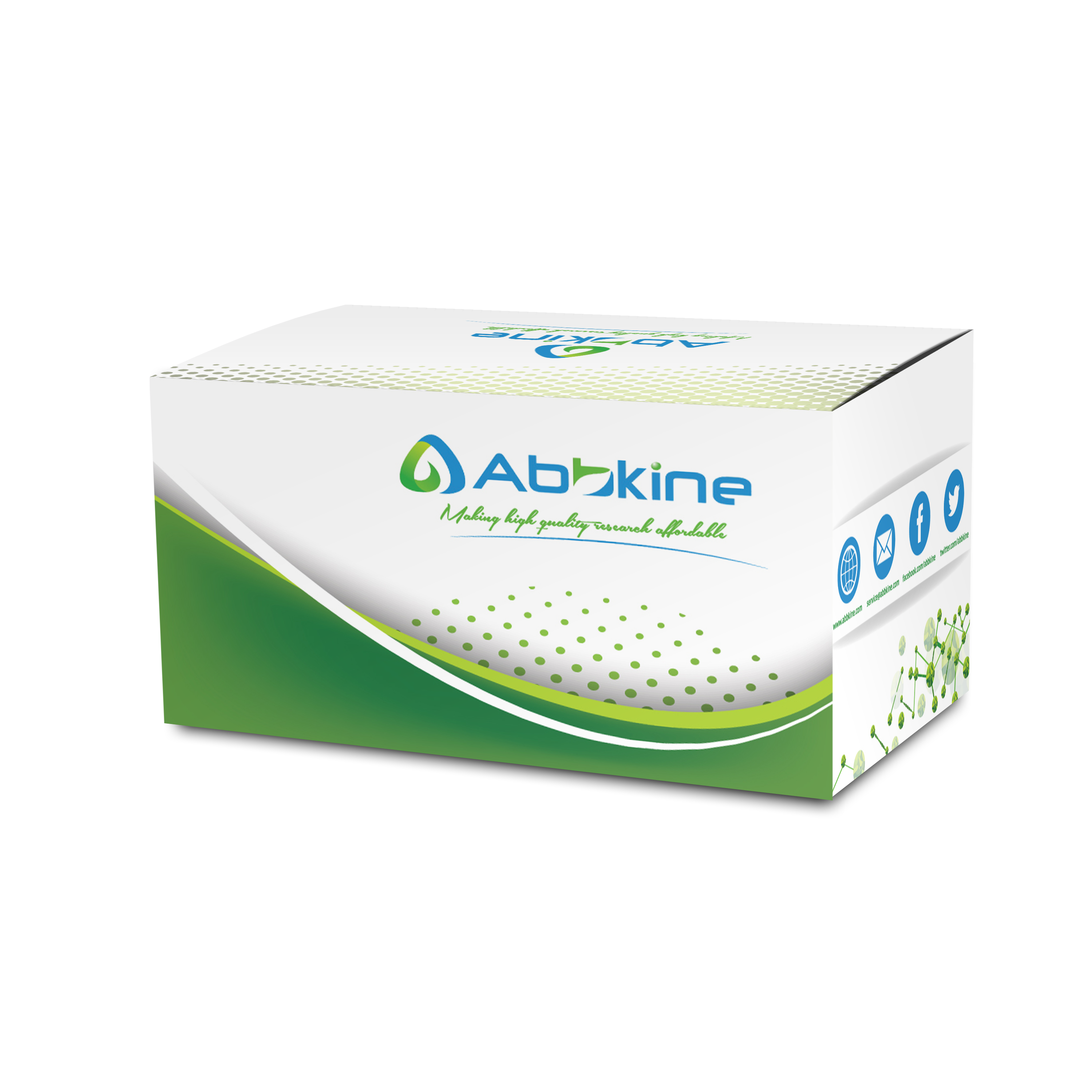| Product name | CheKine™ Micro Mitochondrial complexⅡ Activity Assay Kit |
| Applications notes | Abbkine CheKine™ Micro Mitochondrial Complex II Activity Detection Kitis specially developed for the detection of complex I activity. The operation is simple and convenient, and the detection is more sensitive and accurate.The reduced coenzyme Q, which is the catalytic product of the mitochondrial respiratory chain complex II, can further reduce 2,6-dichloroindoxyl, which has a characteristic absorption peak at 605 nm. So, the activity of complex II could be calculated according to the decrease rate of 2,6-dichloroindoxyl. |
| Kit components | • ReagentⅠ • Reagent Ⅱ • Reagent Ⅲ • Reagent Ⅳ • Reagent Ⅴ • Reagent Ⅵ |
| Features & Benefits | • Detect the enzyme activity of complex II in plant tissues, animal tissues, and cells. • Provides detailed sample preparation and results calculation methods. |
| Usage notes | • Do not mix the components between different batch numbers and manufacturers; otherwise, the results may be abnormal. •Avoid bubbles while mixing or redissolving components. • Change pipette tips frequently to avoid cross contamination between components. • Ensure that all components and equipment are at the proper temperature before starting the experiment. • In order to guarantee the accuracy of experimental results, need to do a pre-experiment with 1-2 samples. If the absorbance values is too high (above 1.5) or ΔA is greater than 0.4, the samples should be dilute with ReagentⅡand then measured again . Pay attention to multiply by the dilution factor when calculating the result. If ΔA value is too small, the sensitivity can be improved by increasing the sample volume added. • The protein concentration of the sample needs to be determined by users. |
| Storage instructions | The kit is valid for 6 months. Please refer to the table below Materials supplied and Storage conditions to store all the components. |
| Shipping | Gel pack with blue ice. |
| Precautions | The product listed herein is for research use only and is not intended for use in human or clinical diagnosis. Suggested applications of our products are not recommendations to use our products in violation of any patent or as a license. We cannot be responsible for patent infringements or other violations that may occur with the use of this product. |
| Background | Mitochondrial complex II, also known as succinic acid-coenzyme Q reductase, is widely found in mitochondria of animals, plants, microorganisms and cultured cells. Complex II could catalyze the oxidation of succinic acid to produce fumaric acid, while the cofactor FAD reduced to FADH2,which further reduces oxidized coenzyme Q to produce reduced coenzyme Q, which is a branch of the respiratory electron transport chain. |

Fig.CheKine™ Micro Mitochondrial complexⅡ Activity Assay Kit
The reduced coenzyme Q, which is the catalytic product of the mitochondrial respiratory chain complex II, can further reduce 2,6-dichloroindoxyl, which has a characteristic absorption peak at 605 nm. So, the activity of complex II could be calculated according to the decrease rate of 2,6-dichloroindoxyl.
Yes,It can be crushed by ultrasonic.The reference ultrasonic conditions are as follows: ice bath ultrasonication for 5 min (power 20%, ultrasonication for 3 s, interval of 7 s, repeated 30 times).
Store the supernatant and pellet together at -80°C, pay attention to aliquoting and avoid repeated freezing and thawing. It is recommended to use fresh samples for experiments whenever possible.
Author:Liu, Yingxin, et al. Publication name:Environment International IF:11.8
Author:Liu, Yuqiang, et al. Publication name:Journal of Translational Medicine IF:7.4
You must be logged in to post a review.
Reviews
There are no reviews yet.